Stock Market Winners, Losers and Lessons Learned
Kiplinger.com senior investing editor Kyle Woodley joins our Your Money's Worth podcast to discuss what we can learn about investing from the stock market's winners and losers. Also, our hosts Ryan Ermey and Sandy Block clear up confusion around paying back stimulus checks.

Profit and prosper with the best of Kiplinger's advice on investing, taxes, retirement, personal finance and much more. Delivered daily. Enter your email in the box and click Sign Me Up.
You are now subscribed
Your newsletter sign-up was successful
Want to add more newsletters?

Delivered daily
Kiplinger Today
Profit and prosper with the best of Kiplinger's advice on investing, taxes, retirement, personal finance and much more delivered daily. Smart money moves start here.

Sent five days a week
Kiplinger A Step Ahead
Get practical help to make better financial decisions in your everyday life, from spending to savings on top deals.

Delivered daily
Kiplinger Closing Bell
Get today's biggest financial and investing headlines delivered to your inbox every day the U.S. stock market is open.

Sent twice a week
Kiplinger Adviser Intel
Financial pros across the country share best practices and fresh tactics to preserve and grow your wealth.

Delivered weekly
Kiplinger Tax Tips
Trim your federal and state tax bills with practical tax-planning and tax-cutting strategies.

Sent twice a week
Kiplinger Retirement Tips
Your twice-a-week guide to planning and enjoying a financially secure and richly rewarding retirement

Sent bimonthly.
Kiplinger Adviser Angle
Insights for advisers, wealth managers and other financial professionals.

Sent twice a week
Kiplinger Investing Weekly
Your twice-a-week roundup of promising stocks, funds, companies and industries you should consider, ones you should avoid, and why.

Sent weekly for six weeks
Kiplinger Invest for Retirement
Your step-by-step six-part series on how to invest for retirement, from devising a successful strategy to exactly which investments to choose.
Ryan Ermey: We hear at Kiplinger's recommend a lot of investments, but rarely do you hear how our portfolios are actually doing. Kiplinger.com senior investing editor Kyle Woodley joins the show today to do exactly that. We're talking winners, losers and the investing lessons we can learn from them in our main segment and we'll have some new picks, as well.
- Episode Length: 00:38:24
- Listen to previous Your Money's Worth episodes
- SUBSCRIBE: Apple Google Play Spotify Overcast RSS
Ryan Ermey: On today's show, Sandy and I clear up confusion surrounding stimulus payments in 2020 taxes and a new edition of wild pitches features angel investing opportunities and suspiciously high-interest rates. That's all ahead on this episode of Your Money's Worth. Stick around.
Ryan Ermey: Welcome to Your Money's Worth. I'm Kiplinger's associate editor Ryan Ermey, joined as always by senior editor Sandy Block. Sandy, how are you?
From just $107.88 $24.99 for Kiplinger Personal Finance
Become a smarter, better informed investor. Subscribe from just $107.88 $24.99, plus get up to 4 Special Issues

Sign up for Kiplinger’s Free Newsletters
Profit and prosper with the best of expert advice on investing, taxes, retirement, personal finance and more - straight to your e-mail.
Profit and prosper with the best of expert advice - straight to your e-mail.
Sandy Block: Good. Scored a very large box of Clorox wipes today, because I actually have somebody on the inside. So I'm feeling good about things today, Ryan.
Ryan Ermey: That's pretty good. I recently got a brand-new box of 50 masks for something like $12. If you're not following Fat Kid Deals on Twitter folks, go... and look, are you going to get maybe five tweets a day about some limited edition Jordans that you're never going to buy that are a little bit cheaper than usual? Yeah, you're going to get a few of those, but also deals on masks, inflatable pools. I got a weightlifting bench. Some of the really essential quarantine items that you can find for cheap. So Fat Kid Deals. Free advertising. Go and check it out.
Ryan Ermey: Speaking of quarantine stuff, we thought we were going to be able to bring news of a potential second round of stimulus checks today. But it doesn't... because, come on Sandy, who doesn't like leading off the show...?
Sandy Block: Free money. Here's a check.
Ryan Ermey: Yeah, exactly. Free money. Instead, it's cheap inflatable pools. Alas, nothing is reportable yet on the second stimulus front. So we're going to have to wait. We'll have news about that as soon as it breaks. Well, not as soon as it breaks. As soon as it breaks the following Monday, but suffice to say that there is more bipartisan momentum for a second round of stimulus checks. So we'll keep you updated. Now in the meantime, we have received some reader mail regarding some stimulus check confusion.
Sandy Block: That's right. And people are still confused about the first round of stimulus checks and the biggest source of... well, two things. One are people who haven't gotten it yet, but the other source of confusion is if I got too much, do I have to pay it back when I file my taxes next year?
Sandy Block: And here's one example of a question we got. He says my ex-wife and I have 50/50 custody of our son. Take turns requesting the deductions. We both have similar compensation close to the limit for the 2020 stimulus check. He received a check, because he had the deduction for his son in 2019. She didn't receive one. But since he doesn't have his son's deduction for 2020, he's wondering will I have to give my check back in higher taxes, will my tax bill be adjusted? And he says, while my situation is fairly specific, there's a bigger question regarding how the regulations will be published, who might have to return the benefit and who might not.
Sandy Block: And the good news is the answer from Rocky Mengle, our tax expert, is you will not. The IRS... there are some people who for various reasons may have gotten more than they were supposed to get. But the IRS has put out guidance saying that they are not going to try and collect overpayments. In most cases, paybacks will not be required. If your check is less than your 2020 recovery rebate credit, the law says you will get the difference when you file your 2020 tax return, but you won't be required to repay any stimulus payment amount when filing your 2020 tax return if you got more.
Sandy Block: And that makes sense to me, because as we've said before on this podcast, the IRS is tremendously overworked right now and I just don't think they have the bandwidth to go around and figure out who might've gotten $500 that they weren't technically entitled to. With so many things to worry about these days, that is one thing that I do not think you will have to worry about and our tax experts agree with me.
Ryan Ermey: Right. So a couple examples -- if you have a change in filing status, say you got divorced in 2020. You're going from a combined to an individual AGI. You're probably not going to have to pay it back if you got the additional money for people filing a joint return. Same deal if you got a big raise in 2020, your AGI jumped because of it. You're probably not going to have to give it back. If your child no longer qualifies for a tax credit, same deal. So essentially if you retroactively would have gotten less in 2020, they were still basing things off your 2019 taxes. So in general, as you say, Sandy, it would be unfair if you were basing things off your 2018 or 2019 taxes and they came back and said, "Hey, sorry, you owe us $500." It's not going to happen.
Ryan Ermey: So really the only example and we have a story about this that lists a lot of these kind of scenarios and goes through the math and still pretty much tells you that you're not going to have to pay it back. And we'll put that up in the show notes. The one example that he does cite that you might want to keep an eye on is if you got a second check erroneously. If you got a check that you know was superfluous or whatever, that's probably worth ripping up or at least keep it somewhere that... you don't want to be spending that money. The IRS may come back and say, excuse me, that wasn't supposed to go to you. There was a misspelling or whatever. So that's worth it.
Ryan Ermey: And if the reverse happens, so if you think that you received the wrong amount -- and this is a separate article that we have on the website that we will also link in the show notes -- if you think that you received the wrong amount and by the wrong amount, I mean, not enough, what you should do is calculate what you think you should have received and contact the IRS. Although given how busy they are, I believe that Rocky is recommending waiting a little while to make that contact because they're swamped right now and probably aren't going to get to it. And even after you do make contact, you're really going to have to sit tight while they go through this because as we've mentioned, they are working triple time. And if there's another stimulus check, this is going to be even more work for them.
Ryan Ermey: So we will be keeping an eye on how things are going in terms of the second stimulus check. We will let you know as soon as we know what the deal is going to be, how much money you're going to get, how you're going to get it, whether or not you should be throwing things out in the mail. That answer is probably no. So keep listening. We'll keep bringing this news to you as it comes. And as always, if you have any questions regarding your stimulus or any other financial queries, feel free to submit them at podcast@kiplinger.com.
Ryan Ermey: After the break, Kyle Woodley breaks down his portfolio year to date. What's worked, what hasn't, what he's learned and what he's investing in now. Stay tuned.
Ryan Ermey: We are back, and we're here with Kiplinger.com senior investing editor, Kyle Woodley. And thank you so much for coming on Kyle. We always love having you.
Kyle Woodley: I'm glad to be here.
Ryan Ermey: So I've talked about you being the Don Rickles of the podcast. Like Jack Hanna.
Sandy Block: Insulting everybody.
Ryan Ermey: No. The guy who the listeners know is coming on and is going to come with a bag full of treats. With Rickles or Rodney Dangerfield or someone like that, it was all about... they knew they were getting jokes. And I think with Kyle, the people out there generally know that they're getting picks. Stocks and ETFs. What should I be buying now?
Ryan Ermey: But before we get into any of that, Kyle, you and I talked off the show and we decided it would be a good idea to take a look back because these picks either pan out or they don't and whether they do or don't, there's always something to learn about the investing process and about the thinking behind the picks. So, overall, let's talk about year to date numbers. How has the portfolio done?
Kyle Woodley: So you're right first of all that I do have my bag of treats with me today. And I have an additional one which is after I front my chest for a little minute, I'm also going to embarrass myself for everyone's amusement at home. So as of the July 29th close, which is the night before we recorded this, I was sitting on roughly 47% returns for the year to date. For comparison's sake, you're looking at a total return, so that's price plus dividends, for the Dow of negative 6%, positive 2% for the S&P 500 and the NASDAQ is actually up more than 18%.
Sandy Block: So, Kyle, okay, let's talk about some of your winners. Let's take some victory laps over here. What trades do you want to really crow about and what about the process did you get right?
Kyle Woodley: It's funny. A lot of the bragging that you've seen and rightfully so has been people who jumped in say the late part of March, in April as the market was coming up, everybody bought low. They came up with these explosive gains. 100%, 200%, whatever. Most of my outperformance was actually on the way down, not on the way up. So comparing it to the NASDAQ, I'm about on par with that since the March bottom, which it's about up 55%. But between the start of the year and March 23rd, I only lost about 6% versus negative 23% for the NASDAQ.
Kyle Woodley: So some of this was just a little bit of options trading with Tesla (TSLA) and Virgin Galactic (SPCE). I was just playing around. There's nothing educational to glean from this. They're just small-dollar momentum trades I happened to get right. They helped pad my returns before the dip. But what I'm actually really happy with and that I think is more instructional, there were three things that I did during the bear market pretty early on, and they run the gamut of risk so there's something here for everyone. A little background, I'm buried in news every day, which means I've been reading about COVID-19 since early January-
Ryan Ermey: Market news. You're buried in market news every day.
Kyle Woodley: It gets a little much, but what it did to China and its economy were a very clear early warning signal. And my colleagues can attest to how much I worried about it early on.
Ryan Ermey: Yes, indeed.
Kyle Woodley:I was even going to Costco and stocking up on supplies in early February just in case. I also figured some sort of market downturn was likely, but once we got those first couple of electric selling days in the back half of February, I knew we were off to the races. And so really early on, I did three things.
Kyle Woodley: So number one, I took profits. I sold out of some winning trades. I also sold out of a few losing trades that I knew were going to lose even more. So at the time that was Air Lease (AL), Boeing (BA), Exxon Mobil (XOM). And in a few cases, some of the things I sold, I sold but I planned on buying them back at better prices. So here's the thing. Buy and hold is a great long-term strategy for building wealth. We promote it all the time, but it doesn't mean that you buy and hold for literally forever. If you did that, you'd be sitting on companies like Sears and JCPenney and you'd ride them into the Earth's core and you'd be financially worse off for it. Sometimes if you think the writing is on the wall, for any reason, whether it's single company, whole sector, the market is falling into the depths, you can and should sell.
Kyle Woodley: So number two is I bought a simple hedge. Now, some people hear the word hedge and they think that it has to be some sort of complex strategy, but it doesn't have to be. In fact, if you buy bonds to protect against stock losses, guess what? You're hedging.
Ryan Ermey: You're hedging.
Kyle Woodley: If you own a target-date mutual fund, you're hedging. The classic 60/40 portfolio. That's a hedge, too. See, it's not that crazy. I hedged using an ETF called the ProShares Short S&P 500 ETF (SH). In simple terms, if the market goes down 1%, SH goes up 1%. If you like a lot of the stocks in your portfolio for the long-term, what you do is you buy SH to protect against short-term downside without having to go through the process of bailing out of all of those stocks. So if the market goes down while you're holding SH, your portfolio is still going to go down, just not as sharply. If you're wrong and the market goes up, your portfolio will still go up, just not as sharply. So at my most bearish, I think I was about 15% hedged with SH. I had another 15% in cash, but that meant that 60% of my portfolio was still long, but that cash and SH hedge really softened the blow.
Kyle Woodley: And the last thing is I traded options. And again, this is sort of the more exotic option of the three. I was fairly convinced that the market was going to continue tanking. And so I got greedy. I took out small short bets against the market using options. Specifically, I use put options, which give you the right to sell a stock or fund at a specified price and I did that on an S&P 500 tracker, the SPY. I did this about five or six times. Every time we had a sudden big update during the downturn, I'd buy puts expecting the market to come back to Earth. And it did. It worked out swimmingly. But listen, that's extremely aggressive. It's a very quick way to lose a lot of money. It's something I would not recommend for most folks. And even if you do, that's got to be a very small percentage of what you do.
Ryan Ermey: So enough of this success. Quite enough.
Sandy Block: Don Rickles is here.
Kyle Woodley: That's the twist. I'm Rickles.
Ryan Ermey: Well so, as you say, it's quite a bit easier to talk about the embarrassing stuff when you've done so well. So what are some of the things that you've gotten wrong here and what have you learned?
Kyle Woodley: I feel like I'm going to channel Jim Norton. I don't know if any of you listen to him, but when I say, God, I suck. So my biggest mistakes and I mean all of them, and there were a lot of them, came from two root problems: lack of patience, strong emotions. I didn't get all of those options trades right. In fact, I took a 90% loss on one Virgin Galactic trade out of sheer stubbornness. I was so frustrated that I blew past every basic lesson on mitigating options losses and I actually was tied up, I think, in like four different trades on the same thing at the same time to try to unwind it. It was bad.
Ryan Ermey: Oh no.
Kyle Woodley: But here's something a little bit more relatable if you don't do options. I bought the dip on a couple of stocks a little too early in the bear market, and they started piling up losses quick. One of the best examples was I bought ViacomCBS (VIAC) in early March. And then I took losses somewhere between 17% and 26% because I sold in small packages on the way down as I sold on the way down. Funnily, Viacom also is one of my best trades on the way back up. I ended up buying back again in late March. And earlier in this week, I cashed in half the position at more than 80% gains.
Ryan Ermey: There you go.
Kyle Woodley: I bought Boeing at what I thought was the bottom. 25% later, I'm still wrong. I'm still rolling. I'm sorry. I'm looking at my brokerage account right now. 29% later, I'm still wrong. So yeah, rough going there.
Kyle Woodley: The other thing that I did, and this is something that a lot of people do too, is I got out of things too early on the way up. And if you win on a stock, if you take a gain, you're not really losing. It's still possible to get out way too early. And I did that. I took what I thought were pretty good profits in Zoom Video (ZM) and Peloton (PTON) and then they just kept on running. I was just left in the dust. And the thing is, we all beat ourselves up over investing mistakes. It's perfectly natural. I've had an objectively exceptional year, and I'm still killing myself over the one or 10 that got away.
Kyle Woodley: The thing is, is that it's okay to beat yourself up, but you've got to learn something from it. In my case, it was very clear that I needed to be more disciplined. And over the past couple of months, I would say that one of the best things that I've done is that I've not been freaking out so much about outside up days and down days. I'm rolling with the punches better and that's going to help me make some better long-term decisions.
Sandy Block: So, Kyle, you've talked about making some short term tactical moves in portfolio. We obviously don't want investors making wholesale changes in their investments to try to take advantage of short-term trends. But if an investor wants to maybe hedge against the S&P, if he expects the market to slide ahead of and out of the pandemic and after today's GDP report, I think that's not an unreasonable expectation, what's the fiscally responsible way to go about that?
Kyle Woodley: So I would say that the SH ETF that I mentioned before, I like that because it's a simple one for one hedge. You could say that it's still somewhat aggressive, because it is. I mean -- you're betting on the market going down. So if you're wrong, you're directly wrong, but there are leveraged ETFs out there that go up or down 2x or 3x, depending on what the market or a sector does. And that's a really quick, easy way of losing money. Putting a small amount of money in SH which only can go up or down as much as the broader market does. That's not as aggressive and so that's what I'm comfortable with. But for most people, you could simply just take some profits, keep a little bit more of your portfolio in cash, or put that money into bonds.
Kyle Woodley: Now, right now, bond yields are actually pretty thin so you have to be realistic about what you can expect from them, but just taking a little bit of cash off and waiting to invest it in something else isn't a bad idea. And the important thing to remember is everybody looks, and let's say you take a little bit of cash off and then the whole market goes up you sit there and think, oh, well I've missed out on something, but there could still be other values out there in the market. So don't be afraid to hedge just by taking a little bit of cash and being on the sidelines.
Ryan Ermey: So having looked back at your portfolio for the purposes of this exercise, are there themes that you still like that you still think have room to run and are there any stocks or ETFs that you think look particularly attractive right now?
Kyle Woodley: Sure. So we'll start off with something for more conservative investors. It's a small fund called the Distillate U.S. Fundamental Stability & Value ETF (DSTL). It's a mouthful. I've talked about it on this podcast before, and I've actually gone long in it. The thing is that it's a value fund and you've probably heard for the past few years, that value has been getting killed compared to growth.
Ryan Ermey: Yes indeed, it has.
Kyle Woodley: Yeah, it's been getting killed. But DSTL has been just a rare gem. So most value funds typically look at earnings to decipher value. The thing about earnings, though, is that accountants can skew them using different definitions for earnings. They use non-gap and basically they can manipulate it a little bit. DSTL looks at value based on the cash a company generates and you can't fake cash. So to me, it's just a better way of finding value.
Kyle Woodley: The fund has outperformed the S&P 500 handily since inception in 2018. It's beating the index by about a percentage point so far this year, and it's crushing traditional value ETFs.
Ryan Ermey: Right. If it's beating the S&P 500, then it's doing really well against value.
Kyle Woodley: Overall, it's hard to beat the market. So DSTL is doing things right. I'm also a true believer in the work from home movement. And the idea that the companies that are benefiting from that haven't quite yet hit their ceiling. So I mentioned earlier that I did exit Zoom and Peloton, which are part of that movement. I still actually do hold some consumer-facing companies, including DocuSign (DOCU) and PayPal (PYPL).
Kyle Woodley: But more broadly, I also hold the Direxion Work From Home ETF (WFH). I actually wrote about this when it launched in June. And so what this does is it's a thematic ETF that gives you access to 40 companies from across that work from home theme. So that includes the likes of say Zoom. So that's mobile video. You've got Amazon.com (AMZN), so you get to buy everything from home. You've got Twilio, which does a lot of the communications work in the background and a bunch of other companies.
Kyle Woodley: I also think that airlines are going to have their day again. The flip side is that it's not unreasonable to think that if you could buckle in the next decade too. So I sold out of Southwest (LUV) with decent gains off the bottom and then I got pretty uncertain just about the pace of the recovery. I think, and I really hope that I'll ultimately be punished for being too early on that one. I really hope I am.
Kyle Woodley: So Gary Kelly, who is Southwest's CEO, he built what's always seemed to be the best culture in the industry. They treat their passengers right. Their employees typically love working there. And right now he's making one heck of a bold gamble. So Southwest right now is pledging to keep from laying people off after the government span on layoffs and furloughs ends on September 30th. It hasn't cut as deeply into its flight schedule as other carriers. It's actually putting space between its passengers on flights. It's basically doing every last thing that it can do to keep their passengers happy and loyal while everybody is just cutting to the bone, trying to survive.
Kyle Woodley: Now it's hemorrhaging cash to do it, but it does have one of the best balance sheets in the industry at about $14 billion in cash versus $9 billion in debt as the last read, which was, I think just a few days ago. Basically, if Southwest does survive until flight demand returns to anything resembling normalcy, which will take a while, but if they do, they could be best positioned to enjoy the rebound. And honestly, they deserve it.
Sandy Block: Yeah. Kyle, so interesting because we were talking about... we're doing a customer service story sometime in the future and to the extent to which people will reward companies that did the right thing during the pandemic. Will people be more inclined to shop from companies or patronize companies that treated their people well? And I think you make a good case for Southwest being one of those companies.
Kyle Woodley: Yeah. Anecdotally speaking, Harris Teeter, the grocer by us, I feel like they've done everything right. I feel a lot more comfortable going into their stores. In the state of Maryland, I think they've handled things pretty well, especially around where I live. So, I think all of the grocery stores are fairly safe, but there is that mental tie, just that thing that's in the back of your brain now saying hey, I actually felt fairly safe now. I felt like they took care of me and I want to go back and reward that. And the same thing goes with some of the companies that were really just on the ball with delivery services and curbside pickup services and contactless delivery and so on and so forth.
Kyle Woodley: Domino's Pizza. They were on the ball. A fun thing about Domino's is that Domino's is almost a tech company. I know they serve up pizzas, and I know that for a long time, back in the past, they served up really bad pizzas. But they improved the pizzas and importantly, while they improved the pizzas, they also improved the technology between the apps, some of the more gimmicky services they did. They had a deliver anywhere thing, and you could just be on a beach or whatever and it would know where to... somebody would just roll up in a tiny car, whatever, and deliver your pizza there.
Kyle Woodley: But Domino's has a pretty big presence in China. And so they were sort of early to all this. They saw what this was doing and so they were able to get a little bit of a taste and test out how to do the contactless delivery stuff before a lot of the other companies here could. They had maybe about a one, two month lead on that. And I mean, they've just obliterated. Domino's has been fantastic throughout all this. So yeah, I 100% agree. I think a lot of the companies that treated people right, be it their customers or their employees, I think that there is a lot of additional brand value, additional loyalty that will come with that.
Ryan Ermey: Well, Kyle, a fascinating interview as always. Be sure to head to Kiplinger.com to check out all of the fantastic investing content that Kyle and his team are putting out. Kyle, where should people go looking for that stuff?
Kyle Woodley: You want to show up to Kiplinger.com and check out the investing tab. Also, we have daily briefs of the market's action, usually a couple of actionable ideas, as well. So, if you happen to see what we call the Stock Market Today, you can go there. You should also be able to sign up for our Closing Bell newsletter online in which it'll just come straight to your inbox. You'll find out what the Dow did, what the S&P 500 did, all that, as well as some of the main stocks of the day. That should about take care of it.
Ryan Ermey: Fantastic, Kyle. Well, thank you again for coming on and come back on soon.
Sandy Block: Thanks, Kyle.
Kyle Woodley: Thank you for having me. Have yourselves a good one.
Ryan Ermey: A bank account that sounds more like a pyramid scheme. Sounds like Wild Pitches is next. Don't go anywhere.
Ryan Ermey: We are back and before we go, it's everyone's favorite closing segment, Wild Pitches, tales of our wackiest and most inappropriate PR pitches. Sandy, what do you got?
Sandy Block: Okay, this might actually fall into the deal or no deal, but it's just so outrageous that I'm throwing it into Wild Pitches. I'm not going to name this online bank, but you know who you are. You're in Kansas City.
Ryan Ermey: You know what you did.
Sandy Block: You know what you did. And the lead of the pitch says this no-fee customer-first online bank announced a referral program where customers can boost their savings account rate up to 10% APY.
Ryan Ermey: Which is outrageous.
Sandy Block: What is the average rate on a federally insured bank account, even so-called high-yield bank account, is like 1%, maybe 1.5, if you're really, really reaching. So 10%, it's like, who wouldn't want this, right? This sounds like such a deal. You get way down in the press release. I mean many paragraphs down in the press release. And they say that how this works is that you get a rate boost of 0.5% APY for each person you sign up.
Sandy Block: So in order to get 10%, you would need to refer 20 people to this online savings account. They would have to open a bank account and put in the minimum balance. I don't know about you, Ryan. I come from a very large extended family, and I still do not think that I could come anywhere near getting 20 people to sign up for an online bank account so I could get 10%. I'd be lucky if I could get one or two.
Sandy Block: So I think this is just really misleading. And I think the larger story here is interest rates on no-risk investments are very low. So whenever you see something that suggests that you could earn more than 1%, 2%-
Ryan Ermey: More than the S&P 500 over the course of 80 years.
Sandy Block: Right. You need to really... this I would say is misleading. It's not an outright scam, but there are scams, as well. Whenever interest rates are this low, people looking for people who are very risk-averse are very vulnerable to misleading and scammy pitches. So if someone's offering you 10% APY, you better be very skeptical about it unless you have a really lot of friends.
Ryan Ermey: It's like multilevel marketing with the banks.
Sandy Block: I know. You have to have a party to get them all signed up and give them a gift bag.
Ryan Ermey: Who signs up for a bank account just because some person goes I can make more money if you sign up for a bank account? And you can recruit 20 people. They never look at these pyramid scheme things. It's like, if everyone recruited 20 people of their own, you can make it through like four levels before everyone on Earth... who knows 20 people who'd just sign up for a bank? It's absolutely outrageous.
Sandy Block: So what do you got for us?
Ryan Ermey: So mine is... It was addressed to both of us. So we both got this pitch, and it was to have someone on the podcast to discuss why this is maybe the best time they say to become an angel investor and to start investing in private equity, which I suppose is sort of attractive to people right now, just because with such big swings in the market I guess people get some FOMO, they see things like Kodak. Did you see this that Kodak stock exploded last week?
Sandy Block: Bananas.
Ryan Ermey: Absolutely crazy. I think that there is some investing FOMO and they think, I've seen "Shark Tank." I know that you can make some money by getting some amount of equity back by investing in an up and coming private business. But it's just so out of the realm of possibility for most investors. And this is something that I learned talking about opportunity zone funds, which I think I talked a little bit about on the podcast just because of the tax advantages. First of all, in both cases, you have to be an accredited investor. And at the very least that means that you'll have to have a net worth of over a million dollars. So already most people can't be angel investors. It also means that there's just much less oversight and much less transparency in terms of the things that you're going to be invested in.
Ryan Ermey: First of all, about their financials. Publicly traded companies and traded mutual funds and ETFs, they have to tell you what is going on with their financials. Publicly traded companies have to report to the SEC what is going on under the hood. But also in terms of what you should be expecting in terms of returns. Investing in a company like this, it's not like a stock where it's publicly traded and the market sets the value. You're very much getting returns depending on how things are set up. If you're a direct investor in the business, that's one thing. If you're a kind of private equity investor and investing through a hedge fund or something like that, you're going to pay the enormous fee. You're going to pay the 2 and 20 meaning that you're going to pay 2% up until a guaranteed return, or not guaranteed but a projected return.
Ryan Ermey: They say, okay, we're going to earn you 8% a year. You pay 2% on that first 8%, then you paid 20% on everything over that. And my general advice for things like this, and I think people are probably seeing more of it because the more volatile the market is, the more Wild West stuff that you start to see people getting pitched. And we're probably not the only people getting pitched things like this. Now, the advice for this and the advice that I gave for opportunity zones is that you shouldn't let the tail wag the dog. And what I mean by that is you shouldn't be getting in for the reasons that this pitch says you should be getting in. That now is a particularly good time to be an angel investor, which I can't imagine that's true, by the way, for the majority of businesses. Is now a time with so much uncertainty?
Sandy Block: Right, exactly. You could lose your job.
Ryan Ermey: I suppose their argument would be now's a good time because you can get a better price on certain types of businesses, but the risks are outrageous right now. You don't know when and how the country and the economy are going to open up. There are so many factors. You don't know when a vaccine is going to be developed. And also they say, well, it's because it's a good diversifier. And there are plenty of ways as Kyle got into to diversify your portfolio.
Ryan Ermey: So the one and only reason that you should be getting into something like this is because you have an encyclopedic knowledge of whatever business you're thinking of looking into, and that you're investing with the return profile and time horizon of that investment in mind and you have a really good idea because of the people that you're working with, that you trust, that they can give you a real idea of what that looks like because your money could be tied up for years before you see returns. Investing in private businesses is not like investing in publicly traded ones.
Ryan Ermey: So if you're seeing pitches for these kinds of things, and like I said, I'm sure if we are, then you are. So if you're seeing pitches for these kind of things, you need to vet them extremely carefully. Make sure you have a complete understanding of the business model, of the balance sheet, of the company's earnings potential, of everything before you do this, and you should not be getting into angel investing or any kind of private equity investing just as a diversifier, or because you think it's a good time to do it. You need to do it with a full understanding of the business.
Ryan Ermey: So your typical Kipling your words of caution, but we think they're especially useful, especially in times as volatile as these.
Ryan Ermey: That'll do it for this episode of Your Money's Worth. For show notes and more great Kiplinger content on the topics we discussed on today's show, visit Kiplinger.com/podcast. You can stay connected with us on Twitter, Facebook or by e-mailing us at podcast@kiplinger.com. And if you liked the show, please remember to rate, review and subscribe to Your Money's Worth wherever you get your podcasts. Thanks for listening.
Links and resources mentioned in this episode:
Profit and prosper with the best of Kiplinger's advice on investing, taxes, retirement, personal finance and much more. Delivered daily. Enter your email in the box and click Sign Me Up.

Block joined Kiplinger in June 2012 from USA Today, where she was a reporter and personal finance columnist for more than 15 years. Prior to that, she worked for the Akron Beacon-Journal and Dow Jones Newswires. In 1993, she was a Knight-Bagehot fellow in economics and business journalism at the Columbia University Graduate School of Journalism. She has a BA in communications from Bethany College in Bethany, W.Va.
-
 Dow Adds 1,206 Points to Top 50,000: Stock Market Today
Dow Adds 1,206 Points to Top 50,000: Stock Market TodayThe S&P 500 and Nasdaq also had strong finishes to a volatile week, with beaten-down tech stocks outperforming.
-
 Ask the Tax Editor: Federal Income Tax Deductions
Ask the Tax Editor: Federal Income Tax DeductionsAsk the Editor In this week's Ask the Editor Q&A, Joy Taylor answers questions on federal income tax deductions
-
 States With No-Fault Car Insurance Laws (and How No-Fault Car Insurance Works)
States With No-Fault Car Insurance Laws (and How No-Fault Car Insurance Works)A breakdown of the confusing rules around no-fault car insurance in every state where it exists.
-
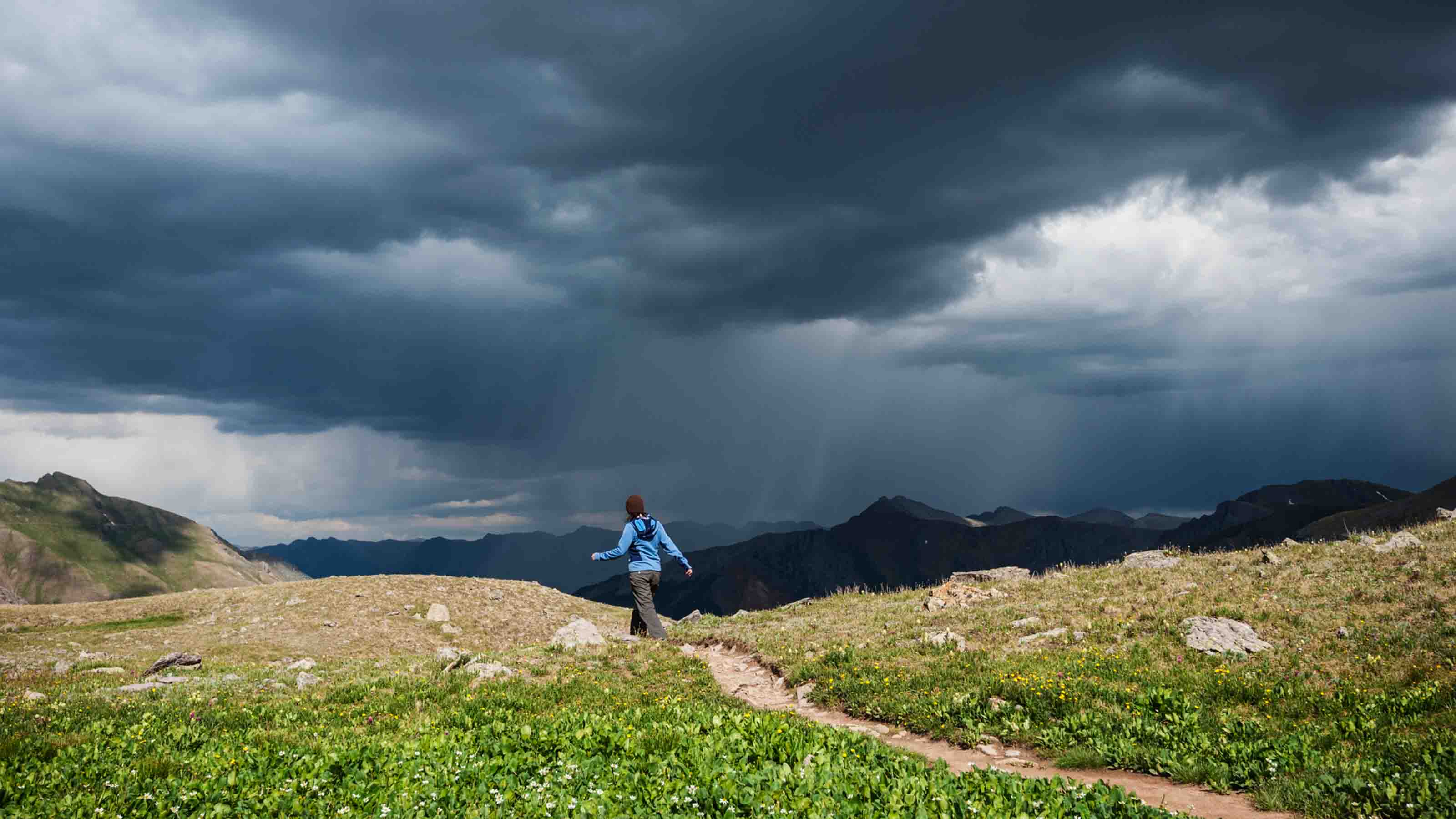 PODCAST: Is a Recession Coming?
PODCAST: Is a Recession Coming?Smart Buying With a lot of recession talk out there, we might just talk ourselves into one. We take that risk with Jim Patterson of The Kiplinger Letter. Also, dollar stores: deal or no deal?
-
 PODCAST: This Couple Tackles Love and Money as a Team
PODCAST: This Couple Tackles Love and Money as a TeamGetting Married Fyooz Financial, the husband and wife team of Dan and Natalie Slagle, have carved out a niche advising other couples with the money questions that come with pairing up. Also, where is this troubled stock market headed?
-
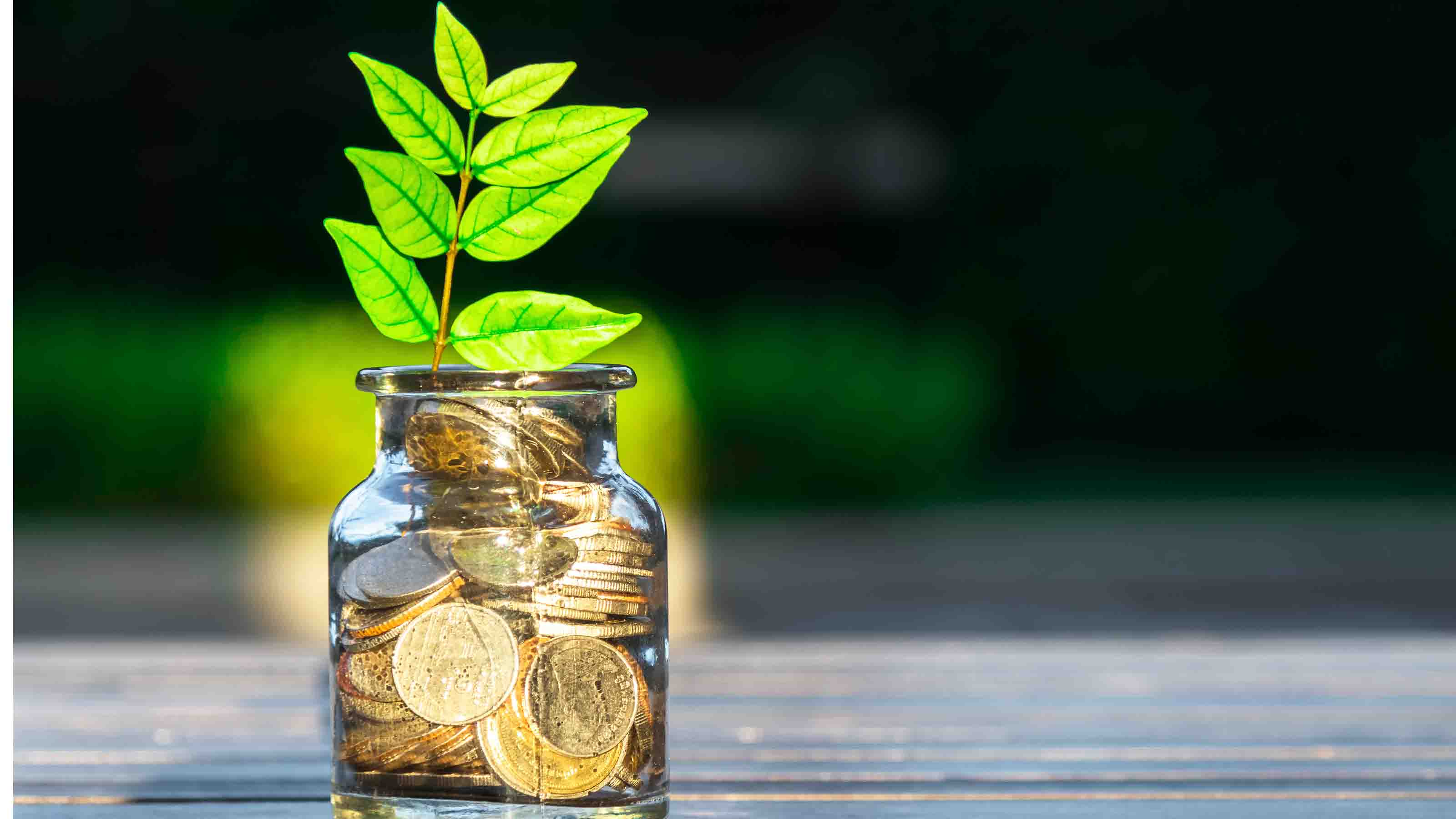 PODCAST: Decoding ESG Investing with Ellen Kennedy
PODCAST: Decoding ESG Investing with Ellen KennedyBecoming an Investor Environmental, social and governance investing is simpler than it sounds, and has a profitable track record to boot.
-
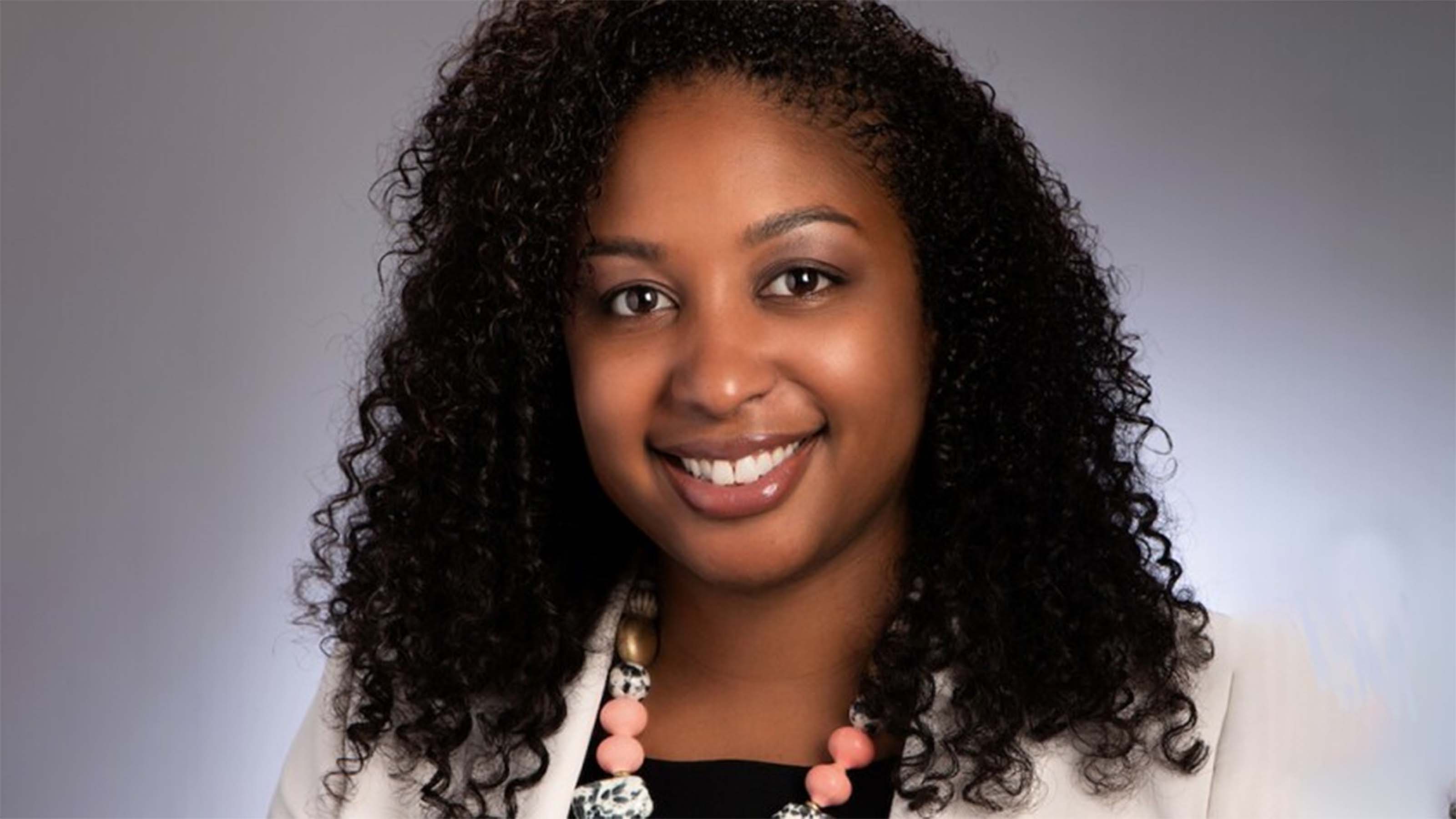 PODCAST: The Future of Certified Financial Planners with Kamila Elliott
PODCAST: The Future of Certified Financial Planners with Kamila ElliottBecoming an Investor CFPs will tell you (and we’d agree) that not all financial advice is the same. We talk with the chair of the CFP Board about what she’s doing to preserve her organization’s brand and extend its reach. Also, the right way to file your tax returns for free.
-
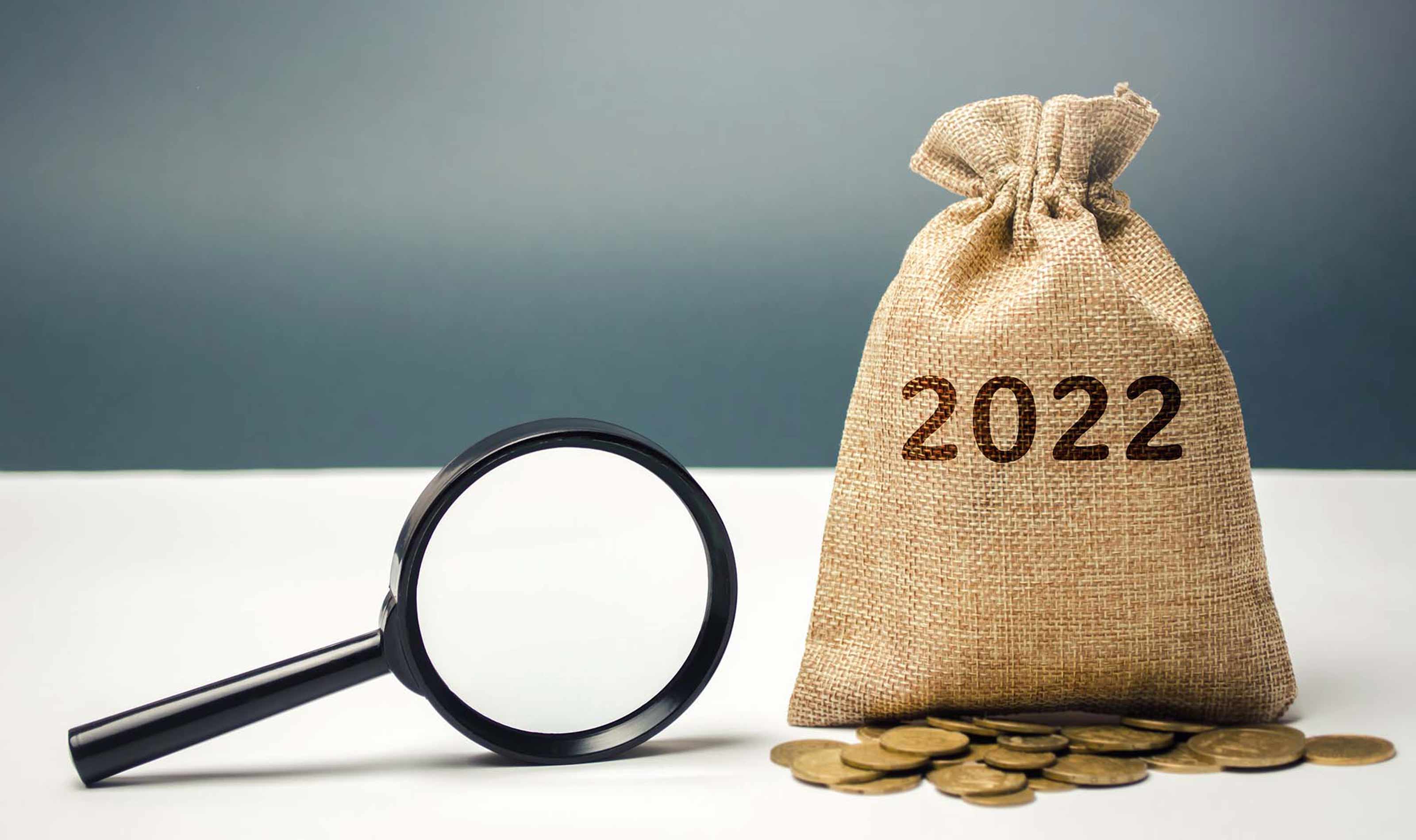 PODCAST: The Kiplinger Letter’s 2022 Forecasts
PODCAST: The Kiplinger Letter’s 2022 ForecastsEconomic Forecasts What to expect from the U.S. economy and an election-year Congress, as well as the outlook for cryptocurrency regulations, TikTok and more. Plus, we give the Elizabeth Holmes verdict a think.
-
 PODCAST: The 2022 Stock-Market Outlook with Anne Smith and James K. Glassman
PODCAST: The 2022 Stock-Market Outlook with Anne Smith and James K. GlassmanMarkets Sure, measuring stock markets by calendar years is a bit artificial, but it’s still a good way to give your portfolio a checkup. We forecast what stocks and sectors will fare well in 2022. Also, how the 401(k) got its start.
-
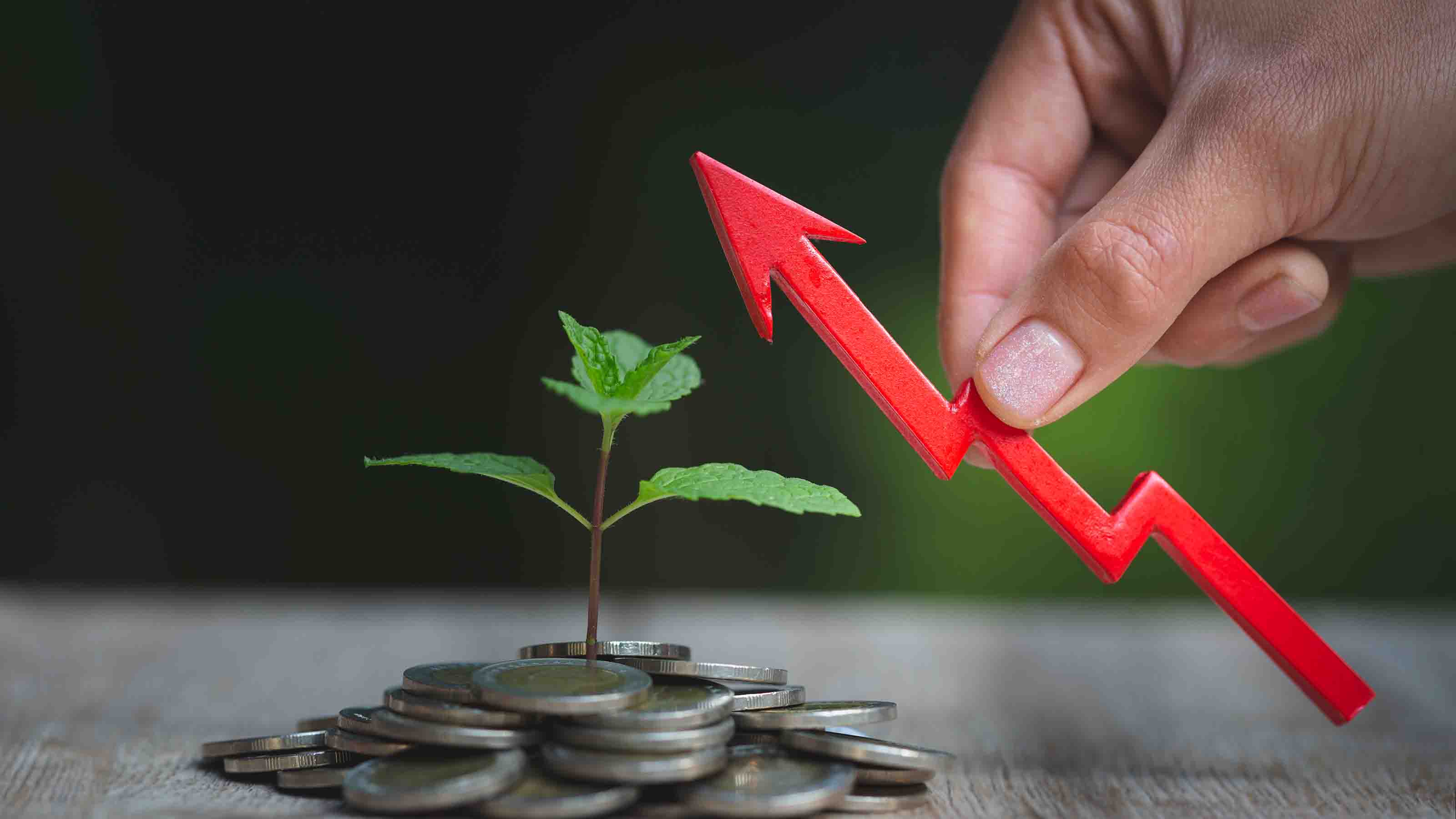 PODCAST: Investing for Income with Jeffrey Kosnett
PODCAST: Investing for Income with Jeffrey Kosnettinvesting Cold, hard cash working from home! No, this isn’t a scam — it’s an investing strategy built on bonds, REITs, preferred stocks and more.
-
 PODCAST: Brandon Copeland on Reaching Financial Freedom
PODCAST: Brandon Copeland on Reaching Financial FreedomFinancial Planning This NFL player’s path to a future of financial independence after his pro career is over can help the rest of us plan.

